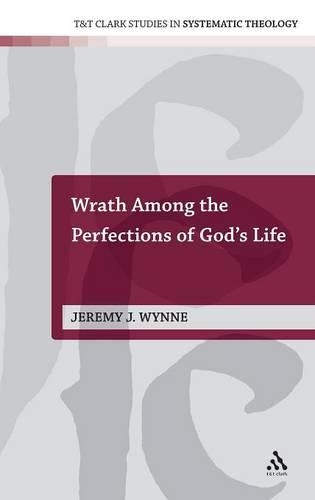
Wrath Among the Perfections of God's Life
(Hardback)
Available Formats
Publishing Details
Wrath Among the Perfections of God's Life
By (Author) Dr Jeremy J. Wynne
Bloomsbury Publishing PLC
T.& T.Clark Ltd
26th August 2010
United Kingdom
Classifications
Tertiary Education
Non Fiction
Theology
Criticism and exegesis of sacred texts
231
Physical Properties
Hardback
240
Width 156mm, Height 234mm
517g
Description
Late-modern theology is marked by persistent and widespread uncertainty as to how the wrath of God can be taken up as a legitimate theme within dogmatics. Rather than engage the most fundamental task of clarifying the inner logic by which God's identity is revealed in scripture, privilege has been ceded either to cultural and textual criticism, to ostensibly self-evident moral sensibilities, or to the thematization of religious experience. The present work sets out to rectify this misstep. The result is a rigorous proposal for understanding wrath expressly within the doctrine of God, as a redemptive mode of divine righteousness.
Reviews
Talk of divine wrath stands at the margins of much contemporary theology, and the great merit of this fine essay is not simply to recall attention to a neglected scriptural theme but to show how it belongs to a well-ordered account of God's perfect righteousness. This is a potent exercise in exegetical dogmaticswell-researched, carefully argued, and elegantly presentedthat should be of considerable interest both in the church and the academy.' - Donald Wood, Lecturer in Systematic Theology, Department of Divinity and Religious Studies, University of Aberdeen, UK. -- Donald Wood
Wrath Among the Perfections of God's Life sets out to correct a long-standing deficit in modern academic theology, the hostility toward Divine wrath as an attribute of the Divine nature. As such, the book itself is decidedly modern in its approach and content: while Lactantius, Irenaeus and Nyssa make important but slender contributions to the work, Schleiermacher, Barth, and Bavinck dominate. The Protestant scholastics -notably Turretin -come in for close attention, and through them, Calvin's Institutes. This is natural, for the opposition to Divine wrath as an attribute, or even aspect, of God's nature is born of the modern era, and has become axiomatic in Schleiermacher, Ritschl, and present-day adherents.This lacuna extends to Biblical scholarship in the modern vein, as this work amply demonstrates. Wynne shows a fine range in his treatment of contemporary authors, moving deftly from analytic philosophers, to systematicians such as Webster, Jngle and Tanner, to secondary authorities on Reformed dogmatics. Wynne's aim is to open up conceptual and doctrinal space for Divine wrath within the life of God: such wrath, he argues, should be set out as a mode of God's righteousness, serving the end of God's merciful justification of the ungodly. Wynne has shown independence of mind and judgment; he has marshaled extensive research in primary and secondary materials; he has argued a clear and sustained thesis through careful and rigorous conceptual analysis.Most importantly, Wynne has taken a doctrine self-evidently central to Christian teaching in the pre-modern era, the wrath of the Living God, and brought it back into conversation with modern academic theology and exegesis -a fine scholarly gift to theology.' - Kate Sonderegger, Professor of Theology, Virginia Theological Seminary, USA. -- Kate Sonderegger
Alongside its astute engagement with contemporary sources, the book nevertheless challenges one's expectations of what a modern theological text should be...W.'s study illustrates expertly how doctrinal theology might yet be serviceable to contemporary Protestantism.'Theological Studies
Author Bio
Dr Jeremy Wynne holds a doctorate in Systematic Theology from King's College, University of Aberdeen.
